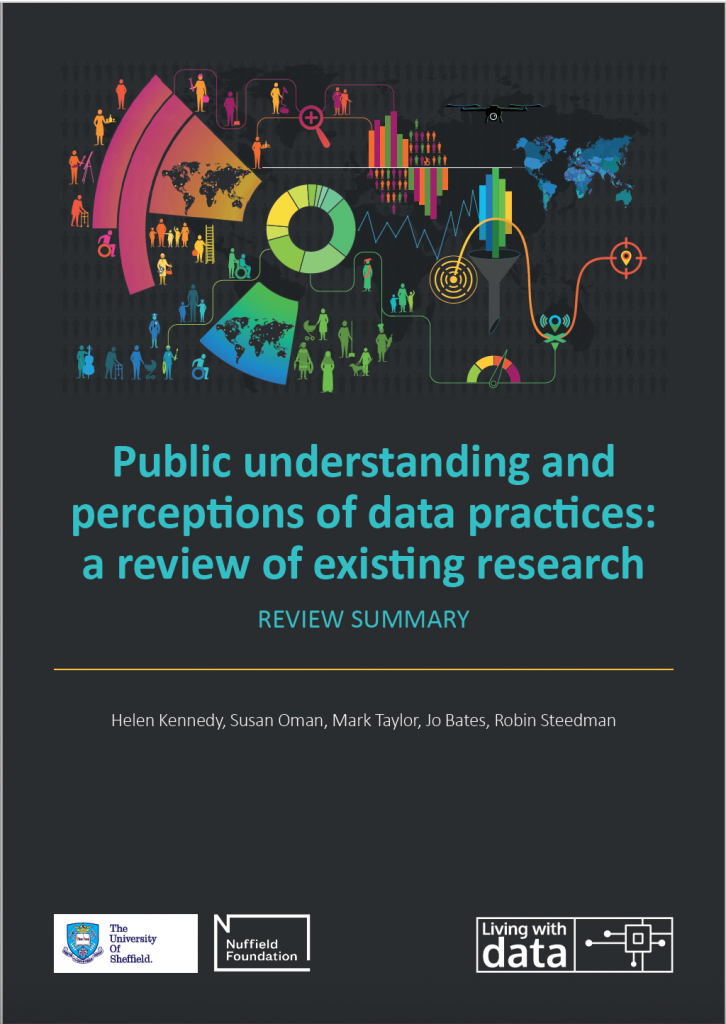Living With Data publishes our extensive review of research into public understanding and perceptions of data gathering and analysis.
Home >

The full review can be found here
A summary of the review can be found here
From hundreds of references we analysed, the review focuses on around 100 empirical studies from the past five years, within a range of academic disciplines and grey literature. We found that:
- People have some knowledge of data practices, but we need to develop methods for understanding this better
- People are concerned about data gathering and analysis, but they’re not only concerned. They hold contradictory views, recognising benefits while being apprehensive of potential harms
- Emotions play an important role in whether people trust organisations with their data. Some sectors (like health) are more trusted than others (like social media) to do the right thing with people’s data, even if people feel less assured of the security measures of public bodies. Trust and distrust in data practices can be felt together.
- Context matters. Who gathers data, what and whose data is gathered, for what purposes and with what effects, influences people’s attitudes.
- Fairer data practices than current ones would include more of the following: honesty, transparency, safeguards, accountability and rights, and personal control.
- Social inequalities influence knowledge and understanding, concerns, degrees of trust in and feelings about data practices. They play a major role in shaping people’s experiences of them, and therefore their understanding and perceptions of them.
Our recommendations for how the findings might inform future research, policy and practice can be found in our accessible summary, here